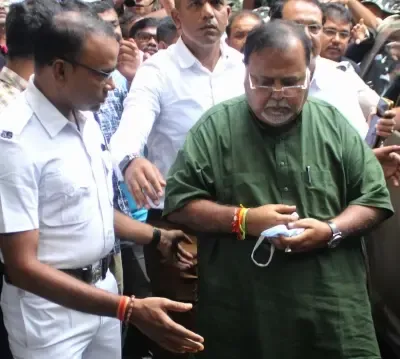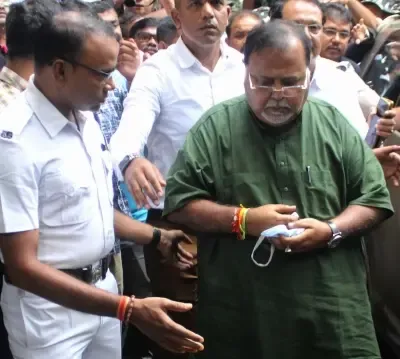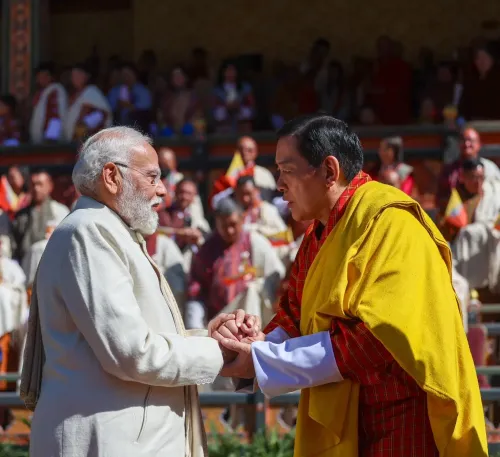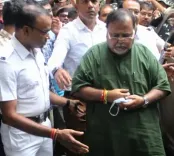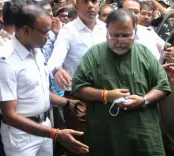Sanjay Raut Slams Immigration Bill as 'Prison for Foreigners'; BJP Justifies on Security Grounds
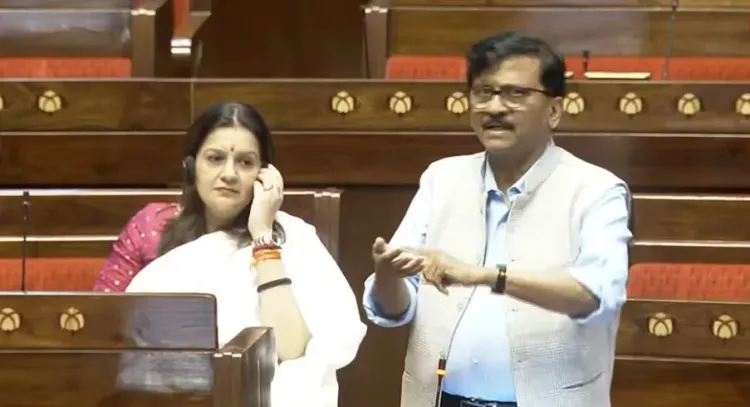
Synopsis
Key Takeaways
- Sanjay Raut criticized the Immigration Bill as detrimental to foreign visitors.
- The bill's Section 7 allows government control over foreigner's movements.
- Raut claims illegal immigration poses significant issues.
- BJP emphasizes national security in defending the bill.
- The bill aims to simplify immigration processes and enhance security.
New Delhi, April 2 (NationPress) The Immigration and Foreigners Bill, 2025, was introduced in the Rajya Sabha by Minister of State for Home Nityanand Rai on Wednesday.
While discussing the bill, Shiv Sena (UBT) leader Sanjay Raut expressed concerns, stating that while no one desires to transform the nation into a "Dharamshala" (a refuge for everyone), it should not evolve into a prison either. "For the last decade, citizens of this country have been treated like convicts. This legislation seems to extend that same treatment to foreigners arriving with valid visas and passports," he remarked.
Raut cautioned that specific clauses in the bill could hinder tourism.
"We do not want unlawful immigrants, be they Bangladeshis, Rohingyas, Americans, or Europeans. When former US President Trump deported Indians living illegally in America, they were shackled and sent back on military planes. If an American is residing unlawfully in India, he should be deported similarly," he stated.
He asserted that over three crore Bangladeshis and Rohingyas are illegally residing in the nation and should be expelled.
Critiquing Section 7 of the bill, he noted that it empowers the Central government to determine where a foreigner can reside, travel, and whom they can meet.
"Under this clause, even foreign delegations, journalists, or diplomats would require government approval to meet significant leaders in India. If permission is denied, those meetings cannot occur," he contended.
Raut also emphasized that past terrorist infiltrations did not occur through legal immigration pathways. "Ajmal Kasab and his associates did not enter with valid passports; they arrived illegally by sea, without detection. While fortifying the law is crucial, this bill should be sent to the standing committee for further deliberation," he advocated.
Conversely, BJP Rajya Sabha MP Ram Chander Jangra defended the legislation, highlighting national security. He remarked that previous immigration laws had flaws in securing borders and preventing illegal immigration.
"The new bill simplifies entry into India, travel documentation, visa prerequisites, and denial of entry when necessary. We aspire to make India a center for medical, educational, and manufacturing initiatives while ensuring that foreigners visit for legitimate reasons. National security remains a top priority, and authorities must have the ability to scrutinize travel documents and deny entry if necessary," Jangra explained.
He noted that India provides e-visas to citizens from 169 countries but underscored the need to empower authorities to protect sovereignty and security. "If there is a threat, officials must possess the right to refuse entry to foreign nationals," he concluded.

